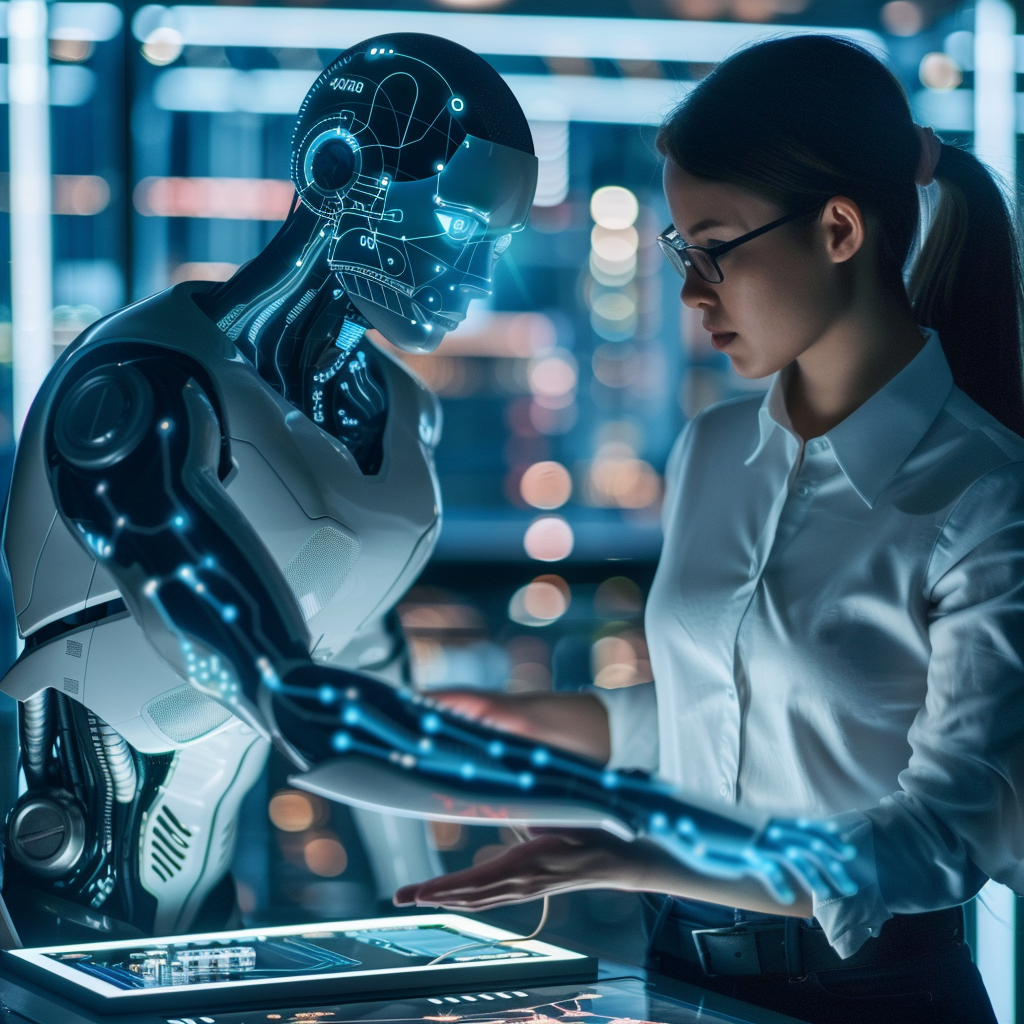Navigating the Precipice: AI and the Looming Threat of Knowledge Collapse in 2024
Defining Knowledge Collapse and Its Emergence in the AI Era
The rise of artificial intelligence has ushered in an era of unprecedented technological advancement, but with it comes the specter of knowledge collapse. This phenomenon refers to the potential loss of human expertise as AI systems become increasingly capable of performing tasks traditionally reserved for human intellect.
In the words of Google’s own blog, “The conversational experience workflow is designed to help you build better Search campaigns through a chat-based experience. It combines your expertise with Google AI.” This delicate balance between human knowledge and machine efficiency is at the heart of the knowledge collapse debate.
As AI continues to evolve, the question remains: how do we maintain the relevance and transmission of human expertise in a world where machines can learn and act on vast amounts of information at an exponential rate?

AI Impact on Jobs in Los Angeles: A Case Study of Industry Transformation
Los Angeles, a city known for its diverse economy and as a hub of innovation, is experiencing a transformative shift in its job landscape due to AI. The “AI impact on jobs Los Angeles” is not just a buzzword; it’s a reality that’s reshaping industries from entertainment to manufacturing.
The integration of AI into various sectors has led to a reevaluation of job roles, with some positions becoming obsolete while new ones emerge. This transformation necessitates a rethinking of career paths and a focus on upskilling to remain relevant in the “Future of work in LA.”
The city’s workforce must adapt to these changes, fostering an environment where human creativity and AI-driven efficiency work in harmony to drive progress and economic growth.

The Psychological and Societal Consequences of AI Overpowering Human Expertise
As AI systems become more adept at tasks once considered the domain of human experts, the psychological impact on professionals and society at large cannot be overstated. The potential for AI to overpower human expertise raises concerns about self-worth, identity, and the value of human cognition in the workplace.
These concerns extend beyond the individual to the societal level, where the rapid advancement of AI could lead to a stratification of knowledge and skills, creating new social divides. The challenge lies in ensuring that AI serves as a complement to human expertise, rather than a replacement.
The conversation around AI must therefore include not just the technological and economic implications, but also the profound psychological and societal effects that accompany this shift in the balance of knowledge power.
Preserving Human Knowledge in the AI Era: Strategies and Safeguards
Preserving human knowledge in the face of AI’s rapid development is essential for ensuring that our collective wisdom is not lost to the annals of history. As Salesforce’s Lightning Knowledge Guide suggests, “Create a static URL for your Knowledge articles so you can easily share them with customers and colleagues.” This speaks to the need for systems that not only retain knowledge but also make it accessible and transferable.
Strategies such as creating comprehensive knowledge bases, as highlighted by Microsoft Azure’s QnA Maker service, are crucial. “QnA Maker allows you to manage your knowledge bases by providing access to the knowledge base settings and content,” ensuring that human expertise is captured and curated for future generations.
These safeguards are vital in creating a symbiotic relationship between human knowledge and AI capabilities, where each complements the other, leading to a more resilient and informed society.
Artificial Intelligence Ethics 2024: Balancing Innovation with Intellectual Growth
As we approach the year 2024, the discourse around “Artificial Intelligence ethics 2024” is gaining momentum. Ethical considerations must be at the forefront of AI development to ensure that innovation does not come at the expense of intellectual growth and human values.
The ethical deployment of AI involves transparency, accountability, and a commitment to the betterment of humanity. It requires a framework that encourages the responsible use of AI, while also fostering an environment where human intellect and creativity can flourish alongside technological advancements.
The challenge for society is to establish ethical guidelines that balance the pursuit of innovation with the preservation of our intellectual heritage and the promotion of equitable access to the benefits of AI.
AI and Education in Los Angeles: Preparing for a Future Dominated by Machine Learning
The intersection of “AI and education in Los Angeles” is crucial for preparing the next generation for a future dominated by machine learning. Educational institutions in the city are tasked with integrating AI into their curricula, not just as a subject to be studied but as a tool for enhancing learning and critical thinking skills.
By embracing AI in education, Los Angeles can equip its students with the knowledge and skills necessary to navigate a world where AI plays a central role in various aspects of life. This preparation is key to ensuring that the workforce of the future is adaptable, innovative, and ready to collaborate with AI.
The goal is to create an educational ecosystem that not only imparts knowledge about AI but also instills the values and ethics required to use it wisely, ensuring that human intellect remains a vital component of our collective future.
For those in Los Angeles looking to stay ahead of the curve in software development and AI integration, Bee Techy is your go-to source. Visit https://beetechy.com/get-quote to contact us for a quote and embark on a journey to harness the power of AI while preserving the essence of human expertise.
